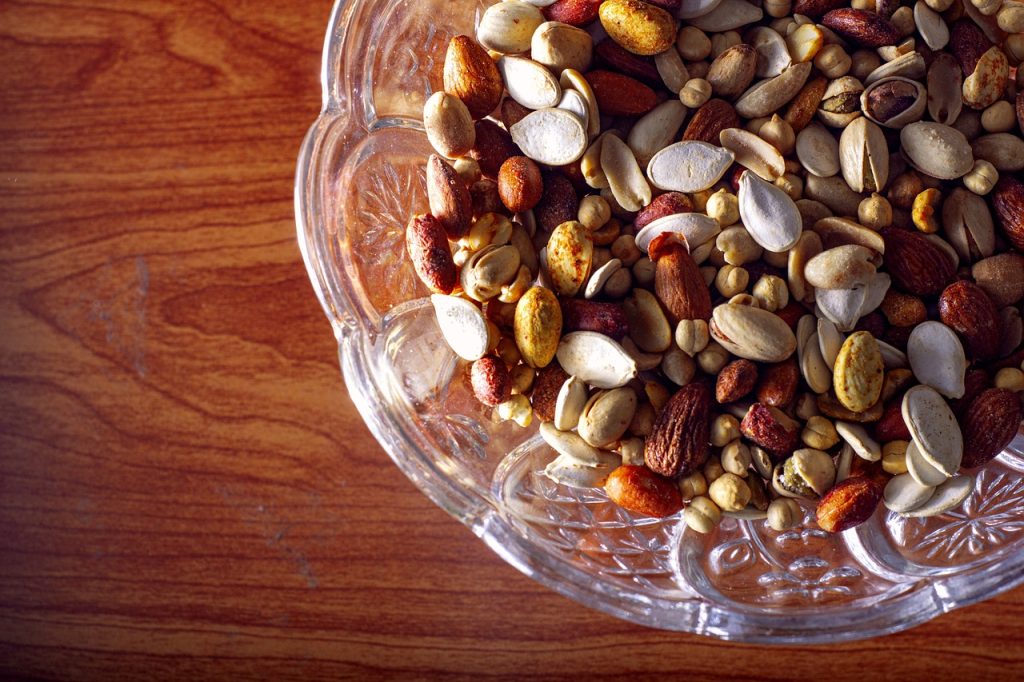The Superfoods You’re Probably Not Eating Enough Of
As Molly mentioned in her Holistic Care blog this month, nuts and seeds are nutrient-dense foods that can be a valuable part of a healthy diet. They are good sources of protein, healthy fats, fiber, vitamins, and minerals. Eating nuts and seeds on a regular basis may offer a number of health benefits, including:
- Reduced risk of heart disease: Nuts and seeds contain healthy fats, such as monounsaturated and polyunsaturated fats, which can help lower LDL cholesterol and raise HDL cholesterol. This can help reduce the risk of heart disease and stroke.
- Improved blood sugar control: Nuts and seeds are a good source of fiber, which can help slow down the absorption of sugar into the bloodstream. This can help improve blood sugar control and reduce the risk of type 2 diabetes.
- Weight management: Nuts and seeds are high in calories, but they are also very filling and satisfying. This can help you eat less overall and promote weight loss or maintenance.
- Reduced risk of cancer: Nuts and seeds contain antioxidants, which can help protect cells from damage. This may help reduce the risk of certain types of cancer, such as colon cancer, breast cancer, and prostate cancer.
- Improved brain health: Nuts and seeds contain nutrients that are important for brain health, such as omega-3 fatty acids, vitamin E, and magnesium. Eating nuts and seeds may help improve cognitive function and memory, and reduce the risk of Alzheimer’s disease and other forms of dementia.
Here are some of the top nuts and seeds for your diet:
- Almonds: Almonds are a good source of protein, fiber, vitamin E, and magnesium. They are also one of the best sources of vegetable calcium.
- Walnuts: Walnuts are a good source of protein, fiber, omega-3 fatty acids, and vitamin E. They are also the only nut that contains a significant amount of alpha-linolenic acid (ALA), a plant-based omega-3 fatty acid.
- Flaxseeds: Flaxseeds are a good source of protein, fiber, omega-3 fatty acids, and lignans, which are plant compounds with antioxidant and anticancer properties.
- Chia seeds: Chia seeds are a good source of protein, fiber, omega-3 fatty acids, and calcium. They are also very absorbent, so they can be used to thicken soups, stews, and smoothies.
- Pumpkin seeds: Pumpkin seeds are a good source of protein, fiber, magnesium, and zinc. They are also a good source of iron, which is an important mineral for women and children.
There are many ways to include nuts and seeds in your diet. Here are a few ideas:
- Add them to breakfast cereals, yogurt, oatmeal, or smoothies.
- Snack on them throughout the day.
- Use them as a topping for salads, soups, and stews.
- Add them to baked goods, such as muffins, bread, and cookies.
- Make nut butter or seed butter and spread it on toast, crackers, or fruit.
When choosing nuts and seeds, it is important to select unsalted and unroasted varieties. Salted and roasted nuts and seeds can be high in sodium, which can raise blood pressure.
Nuts and seeds are a healthy and delicious way to add nutrients to your diet. Eating a variety of nuts and seeds on a regular basis can offer a number of health benefits, including reduced risk of heart disease, improved blood sugar control, weight management, and improved brain health.
Bruce
Image by Usman Yousaf from Pixabay
